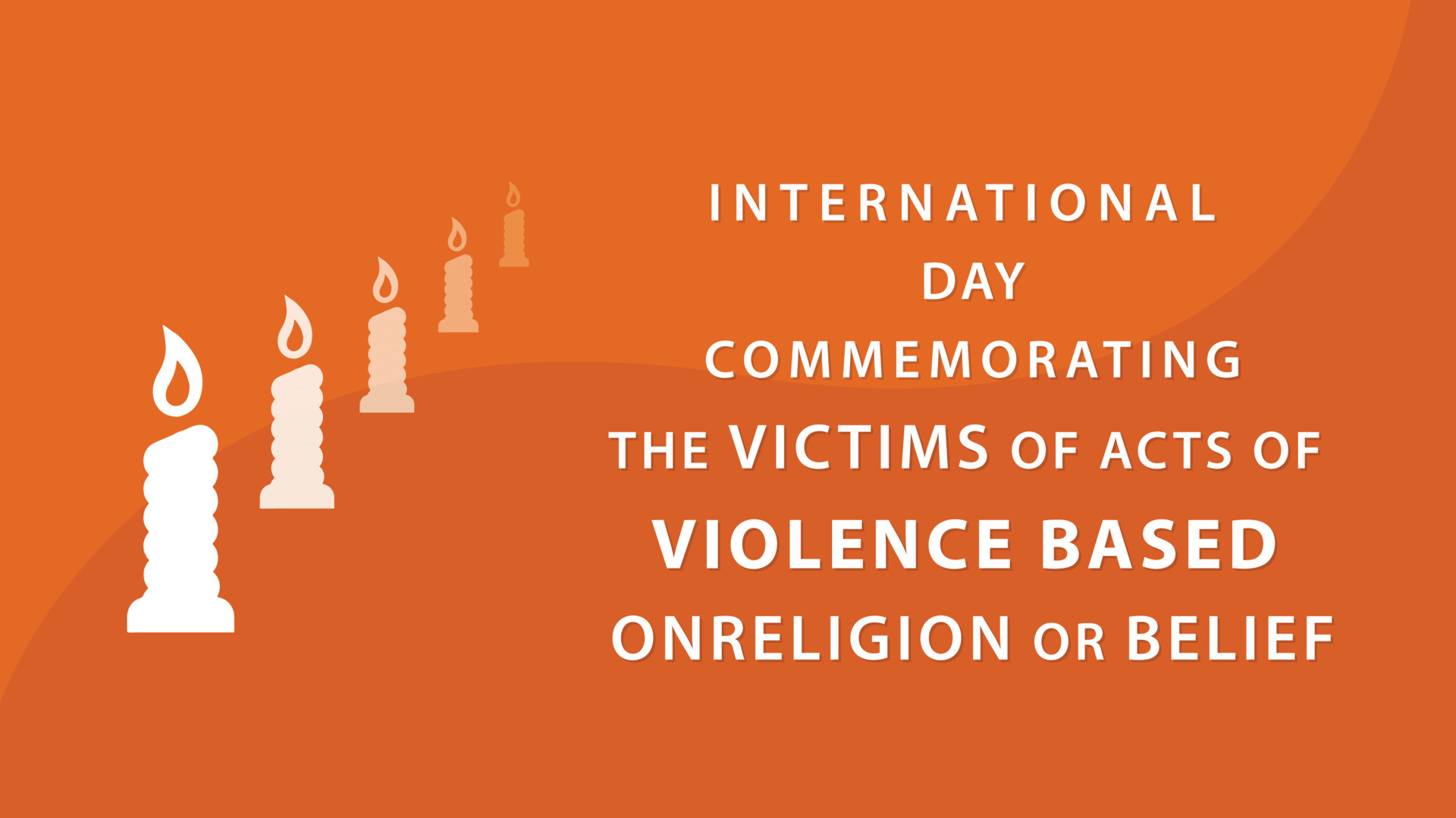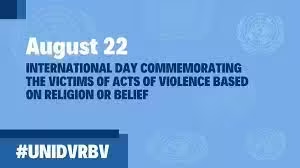Table of Contents

The International Day Commemorating the Victims of Acts of Violence Based on Religion or Belief 2024, observed annually on August 22, stands as a poignant reminder of the profound impact of religious intolerance and violence on individuals and societies worldwide. This day, established by the United Nations in 2019.
Significance of the Day
The establishment of this international day reflects a growing recognition of the need to address and counteract such violence on a global scale.
Advocacy and Action & Awareness and Education
Commemorating this day helps galvanize international and local efforts to combat religious violence. It encourages governments, organizations, and individuals to advocate for policies and practices that protect freedom of religion and belief.
It raises awareness about the persistent issues of religious intolerance and persecution. By highlighting individual stories and the broader patterns of violence, it educates the public and policymakers about the urgency of addressing these issues.
Reflection and Dialogue & Honor and Solidarity
It provides an opportunity for reflection on the progress made and the challenges that remain in the quest for religious tolerance. It fosters dialogue among different communities to promote understanding and reconciliation.
The day serves as a tribute to victims, acknowledging their suffering and loss. It expresses solidarity with those who continue to face persecution and provides a platform for their voices to be heard.

Current Global Context
Discrimination and Hate Speech & State-Sponsored Persecution
Even outside of overt violence, discrimination and hate speech targeting religious communities can create hostile environments and contribute to a broader culture of intolerance. This can manifest in various ways, including social exclusion, economic disadvantages, and restrictions on religious expression.
In some countries, state actors engage in or endorse religious persecution. This can take the form of discriminatory laws, restrictions on religious practices, and direct violence against religious communities. Such state-sponsored actions often aim to suppress dissent or consolidate political power.
Extremist Groups & Sectarian Conflict
Non-state actors, such as extremist and terrorist groups, continue to perpetrate violence against individuals and communities based on their religious beliefs. Groups like ISIS, Boko Haram, and others have targeted religious minorities with brutal attacks, including bombings, kidnappings, and executions.
In regions with diverse religious populations, sectarian tensions and conflicts have led to significant violence. These conflicts can be fueled by historical grievances, political manipulation, and social divisions, leading to sustained and pervasive violence against specific religious groups.
Key Themes and Messages
Unity and Diversity & Global Responsibility
Promoting religious tolerance involves celebrating the rich diversity of beliefs and practices around the world. The day encourages people to recognize and embrace this diversity as a source of strength and enrichment rather than division.
Addressing religious violence requires a collective effort from the international community. Governments, civil society organizations, and individuals all have roles to play in creating environments where religious freedom is respected and protected.

Case Studies and Examples
The Rohingya Muslim minority in Myanmar has faced significant violence and persecution, including military-led operations that have resulted in mass displacement and human rights abuses. The international community has condemned these actions and called for accountability and support for affected communities.
In the Middle East, religious minorities, including Christians, Yazidis, and others, have faced severe persecution. The rise of ISIS in Iraq and Syria led to widespread atrocities, including mass killings, enslavement, and forced conversions. The international community has made efforts to aid displaced communities and hold perpetrators accountable, but the region continues to grapple with the aftermath of these conflicts.
In India, religious violence and discrimination have affected various communities, including Muslims and Christians. Instances of mob violence, discriminatory policies, and social exclusion underscore the challenges faced by religious minorities in the country.
In China, religious groups such as Falun Gong practitioners, Uighur Muslims, and Tibetan Buddhists have faced severe restrictions and persecution. Reports of surveillance, detention, and forced assimilation practices highlight ongoing concerns about religious freedom in the country.
Efforts and Initiatives
Various countries have enacted laws and policies aimed at combating religious discrimination and violence. These measures include anti-blasphemy laws, hate speech regulations, and protections for religious minorities. However, the effectiveness and implementation of these laws can vary significantly.
Organizations like Amnesty International, Human Rights Watch, and the United Nations have been instrumental in advocating for the protection of religious freedoms and documenting instances of persecution. Their reports and campaigns help raise awareness and mobilize action at the global level.
Humanitarian organizations provide essential support to communities affected by religious violence. This includes emergency relief, psychosocial support, and assistance with rebuilding lives and communities.
Education plays a crucial role in fostering tolerance and understanding. Programs that promote interfaith dialogue, teach about different religious traditions, and address prejudices can help build more inclusive societies.
- why Taliban say I love Hindustan - September 19, 2024
- International Day of Peace 2024 - September 18, 2024
- International Equal Pay Day 2024 - September 17, 2024
